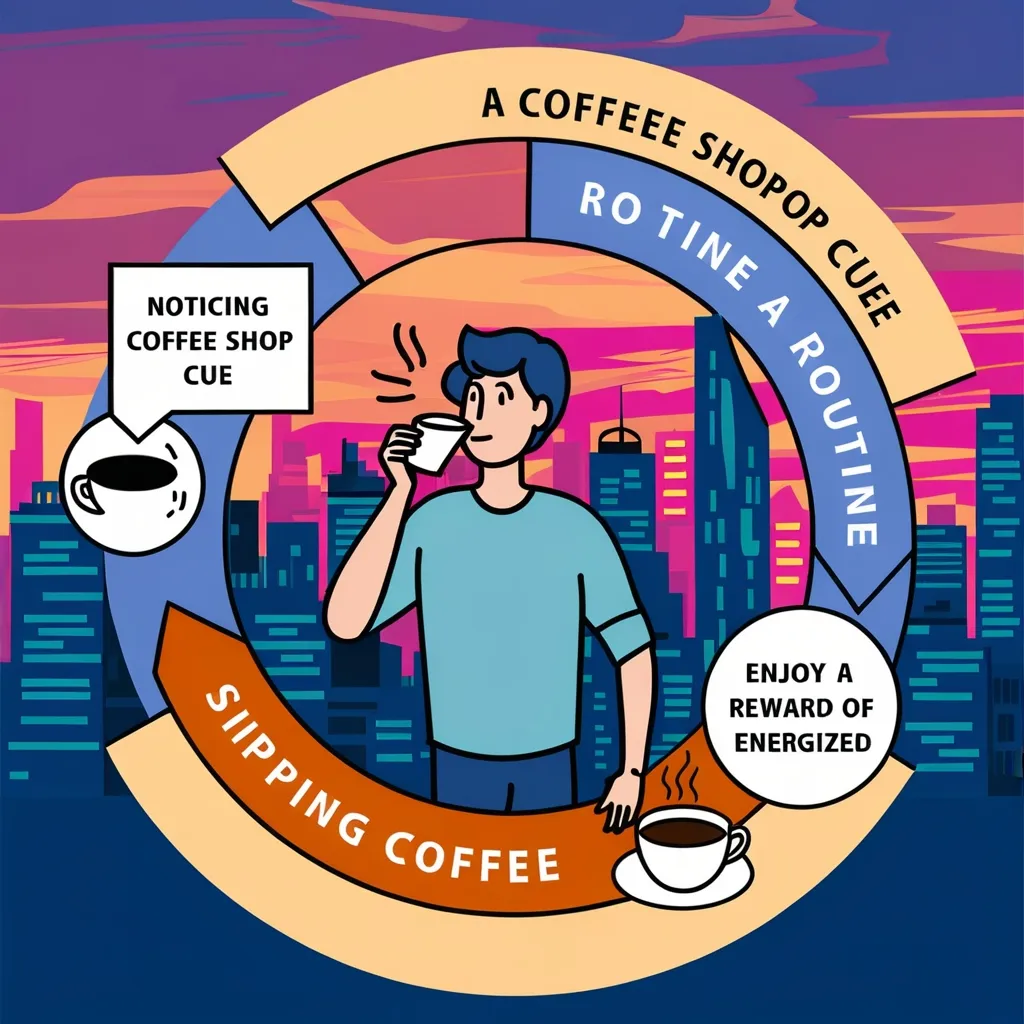Boosting Productivity Through Helping Others: The Surprising Power of Kindness at Work
We often think about productivity in terms of personal strategies like time management and minimizing distractions. But there’s a powerful way to enhance your productivity that might surprise you: helping others. It turns out that lending a hand to your colleagues can have a profound impact on your own well-being and work performance.
Let’s dive into the fascinating psychology behind this concept. When we perceive our work as helping others, we experience a greater sense of meaningfulness in our jobs. Imagine you’re typing away at your desk. If you’re doing it for yourself, it might feel like a chore. But if you’re doing it to help a coworker, suddenly that same task feels more important and valuable.
This sense of meaning isn’t just a warm fuzzy feeling - it’s a real productivity booster. It amps up our motivation and engagement at work. We’re not just pushing papers or clicking buttons anymore; we’re making a difference in someone’s day.
But it’s not just about meaning. Helping others can actually make us happier, and happiness is like rocket fuel for productivity. Think about the last time you made someone a cup of tea or held the door open for them. That little burst of good feeling you got? That’s your brain rewarding you for being kind. And when we feel good, we’re more motivated to tackle our to-do lists.
Now, let’s talk about burnout. It’s the arch-nemesis of productivity, lurking around every corner in our fast-paced work environments. But here’s the kicker: helping others can actually help prevent burnout. It sounds counterintuitive, right? Wouldn’t doing more for others just wear us out faster?
The secret lies in self-compassion. When we help others, we tend to be more understanding of our own failures and shortcomings. We recognize that everyone struggles sometimes, and that’s okay. This self-compassion acts like a shield against burnout, helping us bounce back from setbacks and maintain our productivity even when things get tough.
But the benefits of helping others at work go beyond our own mental state. It’s also about building stronger relationships with our colleagues. Having at least one friend at work can make us feel happier and more engaged. When we help our coworkers, we’re not just completing tasks - we’re building a support network that can carry us through challenging times.
Think about it: when you’ve got a tough project looming, isn’t it easier to face it knowing you’ve got colleagues who have your back? That’s the power of workplace relationships built on mutual support and kindness.
Helping others also gives us a sense of accomplishment that goes beyond ticking items off our to-do list. When we feel that our work is contributing to the well-being of others, we’re more likely to feel passionate about our tasks. This sense of accomplishment can be contagious, inspiring others around us to be successful as well. Before you know it, you’ve created a positive and productive work environment just by lending a helping hand.
It’s important to note, though, that not all help is created equal. The benefits of helping others are most pronounced when it’s voluntary. If you choose to help a colleague with a project, you’ll likely feel more fulfilled than if your boss orders you to do it. It’s about the intrinsic motivation to be kind, not the external pressure to appear helpful.
The culture of your workplace plays a big role in how helping others affects productivity. In workplaces that value teamwork and collective achievement, employees who go out of their way to be kind and helpful tend to thrive. But in highly competitive or individualistic environments, the benefits might be less obvious.
If you’re in a leadership position, you can foster a positive work culture by encouraging kindness and compassion. This could be as simple as creating beautiful work environments or setting examples of generosity. Remember, culture starts at the top!
So, how can you apply all this to your daily work life? Here are a few ideas to get you started:
Volunteer for team projects that go beyond your job description. Maybe you could organize the next office party or help a colleague brainstorm ideas for their big presentation. These extra efforts not only help your team but also give you a sense of purpose and accomplishment.
Offer support to your colleagues when they need it. This could be as simple as answering questions, providing feedback, or just being a good listener. Your support can make a world of difference to someone who’s struggling with a task or feeling overwhelmed.
Recognize the efforts of others. When someone helps you out, make sure to acknowledge and appreciate it. This creates a positive feedback loop where everyone feels valued and motivated to help more. A simple “thank you” can go a long way!
Work on creating a positive work environment. Encourage your organization to foster a culture of kindness and compassion. This could involve simple acts like celebrating employees’ birthdays or recognizing their contributions in team meetings.
Remember, helping others doesn’t have to be a grand gesture. Small acts of kindness can have a big impact. Maybe it’s making coffee for your team in the morning, or offering to proofread a colleague’s important email. These little acts of helpfulness can add up to create a more positive and productive work environment.
It’s also worth noting that helping others can have benefits beyond the workplace. The skills and habits you develop by being helpful at work can spill over into your personal life, improving your relationships and overall well-being.
Of course, it’s important to maintain a balance. While helping others can boost your productivity, you don’t want to neglect your own tasks or burn yourself out. It’s okay to say no sometimes if you’re already stretched thin. The key is to find a balance that works for you and your workload.
Another aspect to consider is the reciprocity of help. When you consistently help others, you’re more likely to receive help when you need it. This creates a supportive work environment where everyone looks out for each other, ultimately boosting overall productivity.
Helping others can also lead to personal growth and skill development. When you assist a colleague with a task outside your usual responsibilities, you might learn something new. This continuous learning can enhance your own skills and make you more valuable to your organization.
It’s also worth mentioning that helping others can improve your problem-solving skills. When you help someone else tackle a challenge, you’re exercising your creative thinking and adaptability. These skills can then be applied to your own work, making you more efficient and productive.
Lastly, remember that helping others doesn’t always mean doing their work for them. Sometimes, the most helpful thing you can do is empower others to solve their own problems. This could involve teaching them a new skill, pointing them towards useful resources, or just offering encouragement. By doing this, you’re not only helping in the short term but also contributing to their long-term growth and independence.
In conclusion, helping others is a powerful tool for boosting your productivity. It increases your sense of meaningfulness, happiness, and accomplishment, while also reducing burnout and strengthening work relationships. By incorporating helping behaviors into your work routine, you can create a more positive and productive work environment for yourself and those around you.
So, the next time you’re looking to enhance your productivity, consider lending a hand to someone else – it might just be the boost you need. Remember, in the world of work, kindness isn’t just nice – it’s smart business.






